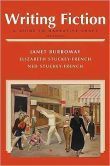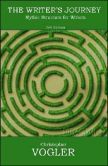Cynthia Chapman Willis's Blog
March 16, 2014
Cindy Chapman Willis 1961 - 2014
It is with deepest regret and a heavy heart that I must inform you that Cynthia Chapman Willis passed away on March 3, 2014 at the age of 52.
Cindy always aspired to be a writer and, to that end, she spent many years in the publishing industry before having her first book, Dog Gone, published in 2008. Cindy left the world of publishing and committed herself completely to her career as an author. She loved the book signings and school visits where she had an opportunity to meet so many wonderful people and answer their questions. Those of you lucky enough to have met her will no doubt remember her bubbly personality and bright, infectious smile.
Cindy told very few people about her battle with cancer. She did not want to burden others with her situation and felt she could maintain her career despite all the demands that cancer made on her. Maintaining a positive attitude and steely determination, Cindy fought this battle for twenty, long months. The most difficult part of her “cancer journey”, as she called it, was not having enough time to write all her stories.
Cindy had an amazing and beautiful gift of connecting with people. She cared deeply and it showed in everything she did. She saw the value in everyone she met and made each person feel special.
I am Cindy’s younger sister. I think of her as the comet in my life: shining brightly and bringing joy to all who were lucky enough to catch a glimpse. I basked in the bright glow of her wake, always happy to tag along. I know that, although it feels very sad and dark right now, the stars will shine again and life will march on as it always does. Perhaps that’s why we need to take the time to watch for comets. They fly by so fast, burn so bright, and disappear so quickly.
For all of you that loved and supported her as an author and friend, thank you and God bless.
Carey
Published on March 16, 2014 15:23
October 31, 2013
Tricks and Treats
Happy Halloween! My mind is full of tricks as well as treats—both the sugary kind and the writing kind. I thought that I'd share some, but
 Photo by earl53not the yummy chocolate or caramel stuff since I haven't figured out how to download high calorie goodies.
Photo by earl53not the yummy chocolate or caramel stuff since I haven't figured out how to download high calorie goodies. Some treats:An article written by H.M. Lewis in the July/August SCBWI Bulletin: “Smart Research for Dummies.” It highlights the benefits that writers might find in some of the For Dummies books. Believe it or not, this was interesting enough for me to label it a treat. Body Language For Dummies by Elizabeth Kuhnke, for example, snagged my attention. Suggestions on how to give my characters another way to communicate? I'll take them.To learn more about the For Dummies books (on writing and almost everything else), check out www.dummies.com
The list of finalists for The National Book Awards, which were announced last week. I love reading award-winners. For more information: http://www.nationalbook.org/nba2013.html#.UnFeb5EsvlI
Another treat is when my mind stirs up the “perfect” ending to a story that I am writing, especially when this solves more than one story problem. I’ve only experienced this kind of an epiphany once or twice, but it can be more delicious than an entire bag of Halloween candy.
Writing inspiration that comes from reading a novel written by another author. I love this treat. A story can be different in every way from what I am writing, yet inspiration, unrelated ideas, and lots of insights pop into my head about my own work as I read. Yummy.
Some Tricks: Novels with ho-hum stakes. When I start reading a story only to realize that the stakes are not high enough, I taste sour disappointment. Why not? If I don’t care all that much about whether the protagonist reaches his or her goals, there's not much point in reading. When I mutter “So what?” it's only a matter of time until I put the book down, usually with a sad sigh.
A character that does something that I can’t believe he or she would ever do, and without reason or justification. My trust disappears. Or when a character says something not in keeping with his or her personality, also without reason or justification. What? I am left feeling as if I’ve been tricked. I no longer trust that I know this character.
Computer irritations. This can be anything from a computer glitch that means my writing, edits, research, etc. has not being saved to some craziness that allows my computer to eat my work. Any techno-nightmare that ruins my writing day falls into this "trick" category.
Are there any tricks and treats that you enjoy? Or tricks that make you want to throw candy at your computer?
Wishing you all a Happy Halloween!
Published on October 31, 2013 08:14
September 4, 2013
Setting as Character
Have you ever read or heard that a writer should consider setting to be a character in a
 Photo by Hotblack, Morguefile.comstory? Have you ever read a story in which the setting came alive? Or, the details, moods, and symbolism of a story brought it to life? I have. And I must say, the right setting details can make an almost magical difference to a story.
Photo by Hotblack, Morguefile.comstory? Have you ever read a story in which the setting came alive? Or, the details, moods, and symbolism of a story brought it to life? I have. And I must say, the right setting details can make an almost magical difference to a story.Think about a story with a vivid setting. I bet it evoked emotions in you as reader. I bet it added to the characterizations in the story. And, I bet that setting changed and developed ever so subtley. Maybe it even included specifics that set the mood and the tone of the scenes. Perhaps the setting even took on a life of its own. Didn’t this use of setting enhance the story? I am guessing that it did.
All of this started churning around in my head as I started reading a novel in which the setting is, so far, a character. The night air breathes, the floors moan and whisper under the weight of someone’s steps, the moon hides behind clouds and peeks out every so often. Goosebumps, anyone? At this point, the setting is a creepy sort of character setting me up for something scary. And I can’t wait to read more.
Enough about what I think. What do you think about setting?
* NOTE: Some of you may have noticed that I skipped blogging in August. Many apologies! I hit a bit of a health snag in my road to recovery. As a result, my writing and blogging schedule felt the hit. Thank you for visiting again, my bloggy buddies! I am on my way to visit you, again, too. : )
Published on September 04, 2013 12:32
July 3, 2013
Summer Reading
Summer is a great time for reading. I love sitting outside, immersed in a wonderful novel or a nonfiction book (maybe a book on the craft of writing), with a glass of lemonade on a sunny day.
I recently finished two books on writing that will end up on the top of my desk, where I keep my favorite books on craft (meaning within reach). Writing Fiction: A Guide to Narrative Craft, by Janet Burroway, Elizabeth Stuckey-French, and Ned Stuckey-French was recommended to me at a Highlights novel workshop. The Writer’s Journey: Mythic Structure for Writers, by Christopher Vogler was a gift from a well-published author who said this book changed his fictional writing life for the better.
 Writing Fiction: A Guide to Narrative Craft is considered a textbook, so be warned--it is a bit pricey. Still, I’m glad I bought it. The text outlines the writing process, including discussions on finding the right details, characterization, fictional time and place, story structure, point of view, and (of course) the process of revision. Short stories and writing exercises at the end of each chapter highlight and reinforce the lessons discussed.
Writing Fiction: A Guide to Narrative Craft is considered a textbook, so be warned--it is a bit pricey. Still, I’m glad I bought it. The text outlines the writing process, including discussions on finding the right details, characterization, fictional time and place, story structure, point of view, and (of course) the process of revision. Short stories and writing exercises at the end of each chapter highlight and reinforce the lessons discussed. A sure sign of how helpful I find a book is how much I highlight the text and dog-ear the pages. My copy of Writing Fiction is tattooed in purple highlighter and sports many bent corners. It’s a good thing that I didn’t borrow my copy from the library.
 The Writer’s Journey: Mythic Structure for Writers explores the relationship between mythology and storytelling. This book focuses on screenwriting as well as novels. According to Christopher Vogler, "all stories consist of a few common structural elements found universally in myths, fairy tales, dreams, and movies." Agree or disagree, this book provides a lot of helpful and thought-provoking information for fiction writing, which probably explains why it is an international bestseller. The text discusses the story journey and its stages, which include archetype characters and the various points of the journey from beginning to end.
The Writer’s Journey: Mythic Structure for Writers explores the relationship between mythology and storytelling. This book focuses on screenwriting as well as novels. According to Christopher Vogler, "all stories consist of a few common structural elements found universally in myths, fairy tales, dreams, and movies." Agree or disagree, this book provides a lot of helpful and thought-provoking information for fiction writing, which probably explains why it is an international bestseller. The text discusses the story journey and its stages, which include archetype characters and the various points of the journey from beginning to end. Yes, I highlighted the text of The Writer’s Journey as much as I highlighted Writing Fiction: A Guide to Narrative Craft. I also dog-earred lots of pages.
Have you read either or both of these books? Have you read any books on the craft of writing that you’d recommend? Anything that goes with sunshine and lemonade?
Happy July 4th!
Published on July 03, 2013 12:48
June 4, 2013
The End In the Beginning?
 T.S. Eliot said that "The end is in the beginning."
T.S. Eliot said that "The end is in the beginning." I’ve always heard that it is not only wise to plant the ending of a story in the beginning, but necessary. Not in an obvious way, of course, but subtly. The beginning of a well-told tale should at least hint as to where that story is going, and perhaps where it will end.
This is one of the many reasons why, for me, much of writing is revising. I outline and yet, because I don’t force myself to stick to the outline (it’s more of a safety net), I often need to revise my story based on what the first draft ends up becoming. I almost always need to adjust my story beginning (adjust often being a nice way of saying rewrite) to suite my story ending.
How about you? If you are a writer, do you try to allude to your story endings in those story beginnings?
If you are a reader, do you appreciate how the ending of a story is sometimes reflected in the beginning of that tale?
Published on June 04, 2013 10:15
May 7, 2013
Something Old Into Something New
 photo by clarita, MorgueFile.com
photo by clarita, MorgueFile.comIt has been said that there are no unique story ideas. Okay, but does that condemn most stories, then, as nothing more than rehashed, already told tales? If so, wouldn’t readers be too bored to pick up a new novel?
Sometimes writers can become infatuated with a great story idea that is less than unique, but the initial impulse might be to shy away from developing such an idea. Is this always wise? Why not consider developing a been there done that premise into something new--a version different and hopefully special. Yes, there are those published story premises done one too many times (Did someone mention vampire romances?) On the other hand, some stories stand out as unique despite the reflection of an already done premise. Think about Romeo and Juliet and West Side Story. Sometimes, a familiar story can be molded and contoured into a stand-alone work with its own merits.
How? Consider fresh characters with unique bends and twists to their back-stories, unique motivations, interesting values, and funky quirks. Or perhaps a unique setting can make a story unique. Maybe an added plot twist or different ending. How would Romeo and Juliet be different if their story was set in the year 2075, on Mars?
What do you think? Can a less than unique story idea be tweaked to be new and improved? How might you transform something old into something new?
Published on May 07, 2013 13:10
April 9, 2013
The Home Stretch
 Photo by Jade, Morguefile.comIsn’t it exciting to come into the home stretch of a work in progress? For me, this is when I am satisfied with the overall story, but I am questioning the smaller stuff. With my focus on the finish line, I give a last look at specific areas of my novel that might need a tweak or an adjustment. For example:
Photo by Jade, Morguefile.comIsn’t it exciting to come into the home stretch of a work in progress? For me, this is when I am satisfied with the overall story, but I am questioning the smaller stuff. With my focus on the finish line, I give a last look at specific areas of my novel that might need a tweak or an adjustment. For example:CHARACTERSWill readers care enough about the characters in my novel to keep reading from page one until the end? I hope the answer is yes, but I will often do a final review by concentrating on individual characters. This is a good way to be sure that each is unique and that actions are not predictable.
CONFLICTI often reread to be sure there is enough conflict and that it is balanced. Too much all at once can be overwhelming or ring false. Not enough can be ho-hum.
SCENESDoes the setting come alive in a way that most benefits each scene? If not, what details can I add to make this happen? How many characters are in the scene and does this work? A crowd can be cumbersome. Also, does something change in each scene? Where is the crisis and the drama? Is every scene necessary to my plot? Are there too many similar scenes?
OVERALL MESSAGE Have I said what I intended? Or, has the message changed somewhere in the many drafts?
What do you focus on when you hit the home stretch of a project (other than finishing it)?
Published on April 09, 2013 09:03
March 19, 2013
Photo by JudituThereis a wonderful quote in Writer’s Dige...
 Photo by Juditu
Photo by JudituThereis a wonderful quote in Writer’s Digest, (October2012) by author Patricia Cornwell. It is in response to a question about rejections and what advice shegives writers. Here’s the quote:
“Quittingcan’t be an option. You don’t become a writer—you are one. And if you reallyare a writer, it’s like telling a songbird to shut up—you can’t.”
I agree, yet, in chat time with some of my writer pals, I have bemoaned the trials and tribulations of writing and publishing, marketing and promoting. Crafting,revising, and polishing a story can be frustrating and grueling. However,despite this, I can’t imagine not spending as much of my time as possibleengaged in this struggle. In fact, when I am put into a situation that doesn’tallow as much writing time as I’d like, I become
 Photo by AcrylicArtist
Photo by AcrylicArtistedgy and discontent. I cravethe struggle even though I may still fantasize about throwing a manuscript outan open window (complete with laptop). Quitting is not an option. Like thesongbird mentioned by Ms. Cornwell, I can’t shut up (ask anyone who knows me).
Doyou consider yourself this kind of writer—the songbird that can’t be quieted? Havecircumstances ever road-blocked your writing? If so, how did this affect you?
A happy Spring to all!
Published on March 19, 2013 09:59
Photo by JudituThere is a wonderful quote in Writer’s Dig...
 Photo by Juditu
Photo by JudituThere is a wonderful quote in Writer’s Digest, (October 2012) by author Patricia Cornwell. It is in response to a question about rejections and what advice she gives writers. Here’s the quote:
“Quitting can’t be an option. You don’t become a writer—you are one. And if you really are a writer, it’s like telling a songbird to shut up—you can’t.”
I agree, yet, in chat time with some of my writer pals, I have bemoaned the trials and tribulations of writing and publishing, marketing and promoting. Crafting, revising, and polishing a story can be frustrating and grueling. However, despite this, I can’t imagine not spending as much of my time as possible engaged in this struggle. In fact, when I am put into a situation that doesn’t allow as much writing time as I’d like, I become
 Photo by AcrylicArtist
Photo by AcrylicArtistedgy and discontent. I crave the struggle even though I may still fantasize about throwing a manuscript out an open window (complete with laptop). Quitting is not an option. Like the songbird mentioned by Ms. Cornwell, I can’t shut up (ask anyone who knows me).
Do you consider yourself this kind of writer—the songbird that can’t be quieted? Have circumstances ever road-blocked your writing? If so, how did this affect you?
A happy Spring to all!
Published on March 19, 2013 09:59
February 26, 2013
Head Versus Heart
 Photo by Ladyheart, www.morguefile.comHow many times have you heard a writer, actor, or artist talk about his or her wildly successful project? Often, we hear or read that such a project has sprung from subject matter close to the creator’s heart—some deep passion about something. In the September, 2012 issue of Writer’s Digest, for example, author Chris Cleave (best seller Little Bee, as well as Incendiaryand Gold) shared that he only writes about topics that he really cares about. Doesn’t it seem like more often than not, success stories start with this kind of spark or passion?
Photo by Ladyheart, www.morguefile.comHow many times have you heard a writer, actor, or artist talk about his or her wildly successful project? Often, we hear or read that such a project has sprung from subject matter close to the creator’s heart—some deep passion about something. In the September, 2012 issue of Writer’s Digest, for example, author Chris Cleave (best seller Little Bee, as well as Incendiaryand Gold) shared that he only writes about topics that he really cares about. Doesn’t it seem like more often than not, success stories start with this kind of spark or passion? On the other hand, though, it’s sometimes hard to ignore what the market hungers for or requests.
If you are a writer, do you write solely about subject matter that has deep meaning for you or that resonates with you? Or, do you let trends or the market influence what you write about? In other words, do you listen to your head or your heart as you decide on a new project?
When you read, can you discriminate between an author who is passionate about his or her subject matter and one who may be more grounded? Does passion for a topic or subject matter always bleed through? Does it need to?
Published on February 26, 2013 09:26



